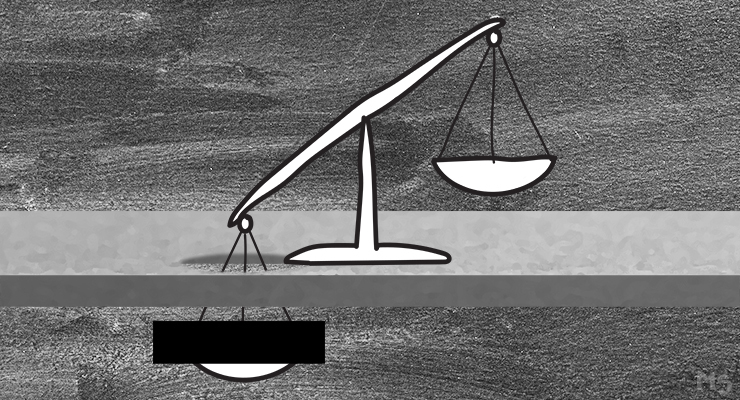
The news broke early on January 11. Twitter was afire with reports that a “very prominent person” was going to appear before the Magistrates Court in Toowoomba, Queensland, that morning charged with two counts of rape in October 2021.
You didn’t have to look too hard to find out who he was, because the court had published his name in its daily court list. However, nobody could lawfully make the link, and the court soon removed his name from the published list — both cauterising the public leakage and inadvertently confirming the news for anyone who had already picked up the rumour.
Why is this so? Specifically, Queensland’s Criminal Law (Sexual Offences) Act makes it a crime to publicly identify a person who has been charged with certain sexual offences before they have been committed for trial or sentence.
Committal is a step that happens after the criminal prosecution first makes it to court; either the accused enters a plea of guilty and is committed for a later hearing to determine their sentence, or they plead not guilty and face a committal hearing. The magistrate then determines whether the case should go to trial; if they decide yes, then only at that point can the accused be named.
Queensland, South Australia and the Northern Territory are the only Australian jurisdictions that have this law, suppressing accused sexual offenders’ identities at the first stage of court proceedings. If the case fails at committal, the prohibition becomes permanent. In all other states and the ACT, an accused perpetrator can be named at any time, unless the court makes a specific suppression order.
The rule is a direct breach of the overarching legal principle of open justice, which dictates that justice must be seen to be done if the system is to maintain public confidence. Any departure requires a substantial ground of justification.
The main rationale for suppression in this scenario is the obvious harm to a person’s reputation if it becomes publicly known that they have been charged with a sexual offence. The social stigma attaching to rapists is arguably stronger even than that which a murderer will acquire — this catastrophic consequence is ironically one of the main reasons we maintain a legal system that makes it almost impossible to secure rape convictions at all, and why rape victims are routinely demonised and retraumatised by its design.
Defenders of the suppression regime also argue that allowing publication at an earlier stage would encourage vigilantism (there is no evidence for this), prejudice to trials (a non-issue, because if there is a trial then the accused will have been named post-committal anyway), and the risk that victims or other innocent witnesses might be inadvertently identified via the naming of the accused (also a non-issue, because such collateral identification is illegal).
In 2003, Queensland’s Crime and Misconduct Commission considered whether the publication ban should be removed. It concluded it should be left in place, because “the particular stigma associated with sexual offending warranted a different approach to other offences for accused persons as well as complainants”.
It was an interesting slip — the idea that there is any relationship of equivalence between the privacy interests of accused perpetrators and their victim-survivors. All states and territories place a blanket statutory prohibition on the identification of survivors, before, during and after the criminal proceedings. It can be lifted only by a court order or the survivor’s consent. The justification is obvious, and nobody seriously argues against it.
If accused rapists should be entitled to any protection, it must be justified on its own terms, not on the spurious basis that if it’s good enough for victims it should be good enough for perpetrators.
It is true, as a fact, that being accused of sexual violence will do devastating harm to a person’s reputation and that an acquittal will not entirely erase that taint. On the other hand, every rapist’s odds of being charged and convicted are less than 1%, so it’s laughable to suggest that we really take rape seriously as a society despite its endemic prevalence and devastating consequences for all its victims.
If we had a system that worked, there might be an argument for secrecy, but we don’t so there isn’t. Transparency is about all we’ve got.
Queensland’s government appointed a women’s safety and justice taskforce in 2021 to examine many aspects of its systemic responses. The taskforce concluded that any potential reputational damage from the naming of an accused was “outweighed by the desirability for open justice, including the importance of media reporting on this often hidden but prevalent issue”. Further, “Increased media coverage … may encourage other people who were assaulted, particularly by that alleged perpetrator, to come forward and report.”
The taskforce recommended that Queensland amend its law to remove the prohibition, in line with most other states. The Palaszczuk government has promised to do so, indicating that an amending bill will be presented to Parliament this year.
As for the “prominent person” whose case triggered this conversation, his identity isn’t likely to be a poorly kept secret for much longer.








Crikey encourages robust conversations on our website. However, we’re a small team, so sometimes we have to reluctantly turn comments off due to legal risk. Thanks for your understanding and in the meantime, have a read of our moderation guidelines.